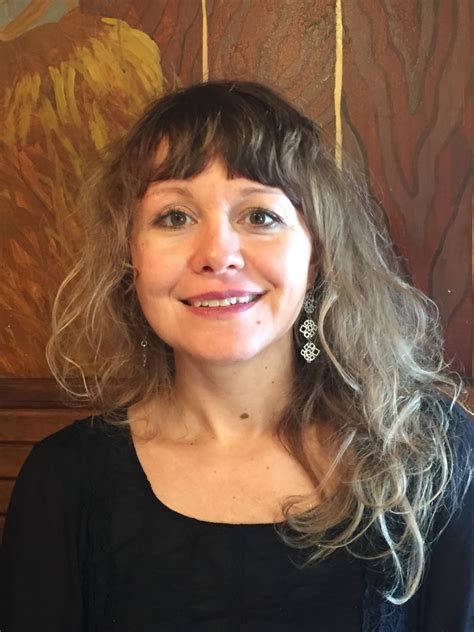A Quote by Dana Spiotta
If you directly try to write about an idea, it will never be what you imagined. But if you're imagining through the building of sentences, through the characters, and paying attention to avoid ease and comfort yet still thinking about making the sentences work, you will get a shot at some real interesting stuff.
Related Quotes
I always tell my students to write the story all the way through, not to play with the language and fall in love with sentences that you then have to cut. I actually find that really difficult to do; there's something so demoralizing about looking at a pile of not very great sentences. As I ease into writing every morning, I tweak a sentence and then tweak a paragraph.
I am a person that is very curious about what is going on in the world and there are a lot of subjects to write about, you meet a lot of interesting people. But one idea will be there and it will show up without any logic. It is a book that has been written in my heart before it is written into sentences.
I write different kinds of sentences, depending on what the book is, and what the project is. I see my work evolving. I'm writing long sentences now, something I didn't use to do. I had some kind of breakthrough, five or six years ago, in Invisible, and in Sunset Park after that. I discovered a new way to write sentences. And I find it exhilarating.
I've learned a lot about language from reading slush. You can immediately tell if a writer is in control of the narrative. This writer will avoid using too many words like "possibly," "probably," "maybe," "perhaps," etc. He/she will avoid using clichés, as well as a lot of metaphors, and won't take four sentences to say what they could in one (or write a great sentence and follow it up with a bunch of stuff that just weakens it).
The most interesting thing about writing is the way that it obliterates time. Three hours seem like three minutes. Then there is the business of surprise. I never know what is coming next. The phrase that sounds in the head changes when it appears on the page. Then I start probing it with a pen, finding new meanings. Sometimes I burst out laughing at what is happening as I twist and turn sentences. Strange business, all in all. One never gets to the end of it. That’s why I go on, I suppose. To see what the next sentences I write will be.
I don't know if make a conscious effort to vary the characters and subjects that I write about, but I do find myself keeping track of ideas that come along, as probably most writers do, and whatever seems most interesting to me when I flip through my notes before I begin a new story is usually what I will try to write about next.
Kyoto is dead and has been dead, but that doesn't mean that it hasn't done some real damage and won't continue to do some real damage," "If global warming turns out to be a problem, which I doubt, it won't be solved by making ourselves poorer through energy rationing." "It will be solved through building resiliency and capability into society and through long-term technological innovation and transformation.
The creation of a film starts with an idea, a notion of a time period or characters, and you get really excited about the idea, and sell it to others if you need their support to write the script. You can't wait to get started, and then you try to start, and you struggle with the blank page, and you get some ideas, and they're bad ideas, and you write bad stuff. It's really bad.
Mandatory minimum sentences give no discretion to judges about the amount of time that the person should receive once a guilty verdict is rendered. Harsh mandatory minimum sentences for drug offenses were passed by Congress in the 1980s as part of the war on drugs and the "get tough" movement, sentences that have helped to fuel our nation's prison boom and have also greatly aggravated racial disparities, particularly in the application of mandatory minimum sentences for crack cocaine.
When we were children, letters were like fun toys. We played with them through our building blocks. We colored them in books. We danced and sang along with TV puppets while learning C was for “cookie.” Soon, letters turned into words. Words turned into sentences. Sentences turned into thoughts. And along the way, we stopped playing with them and stopped marveling at A through Z.
As we go through this transition where a lot more people will be reading on devices, nobody is paying enough attention to make sure it's a smooth transition. I believe we still need places where people can go to handle, hold and talk about books, get information about what books are out there, and so on.
The only thing going on is the progression of words and sentences across page after page and so suddenly we see this immersive kind of very attentive thinking, whether you are paying attention to a story or to an argument, or whatever. And what we know about the brain is the brain adapts to these types of tools.
I try to write about real women, real people - in other words flawed characters. I find flawed characters much more interesting than perfect ones and enjoy the challenge of making readers root for them in spite of their unsympathetic path and destructive choices. Life is about the gray areas. Things are seldom black and white, even when we wish they were and think they should be, and I like exploring this nuanced terrain.



































